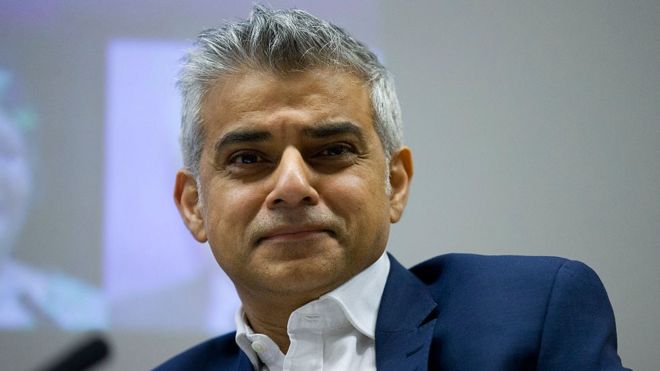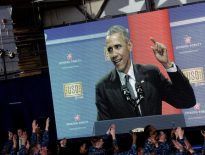Sadiq Khan, now Mayor of London, moved fast to condemn Ken Livingstone at the end of last month for his remarks about Hitler and Israel.
Hardly a surprise – a week before polling day, he would have been well aware how his opponents in the mayoral election could have exploited his failure to condemn his Labour predecessor.
The Conservatives had worked hard to suggest Mr Khan was a fellow sympathiser with those of extreme views, especially Islamic hardliners.
Politically astute, there is also no doubting the sincerity of his reaction. A week on, he has the added advantage of being Labour’s most senior directly elected politician.
Condemnation of remarks seen as anti-Semitic, delivered by the man who is now Britain’s most prominent Muslim politician would have considerable resonance – both here and abroad.
As Mr Livingstone never tired of reminding people, the voting system gives the mayor a personal mandate unmatched even by the prime minister (who, after all, is elected by 35,000 people in Witney, whereas Mr Khan was the first choice of 1,148,716 and picked up the second preference votes of a further 161,427).
Sadiq Khan
Born in Tooting, south London in 1970 to Pakistani immigrant parents
Grew up on a housing estate, one of eight children, his father a bus driver
His two daughters went to the same primary school as him
Has lived his whole life in Tooting, the constituency he has represented since 2005
Previously worked as a human rights lawyer
Served as communities minister and then transport minister under Gordon Brown, making him the first Muslim to attend Cabinet
Was Labour’s shadow justice secretary under Ed Miliband
Trust in community leaders
There is another way in which Mr Khan can use the power of what Americans call the bully pulpit (a prominent position that allows someone to speak out on any issue): by tackling the harmful aspects of South Asian politics that have taken root here.
In 2000, when Tony Blair was trying to stop Mr Livingstone winning Labour’s mayoral nomination the first time around, he attended a rally in Ealing, organised by the late Piara Khabra, the octogenarian MP for Southall.
The diminutive, enthusiastic Mr Khabra proudly – and publicly – reassured the prime minister that everyone in the room would vote for the candidate Mr Blair preferred.
The vote itself was secret and the people there may well have ignored their MP’s direction, but there was some discomfort visible on the platform.
Those present understood this was not simply hubris. In Bangladesh, India and Pakistan, politics is a mass activity, in which people often trust their community leaders to make decisions for them, including advising who they should vote for.
Mr Khabra, who described himself as a secular Sikh, was one of the generation of activists who had transplanted some of that system here when they emigrated to Britain.






